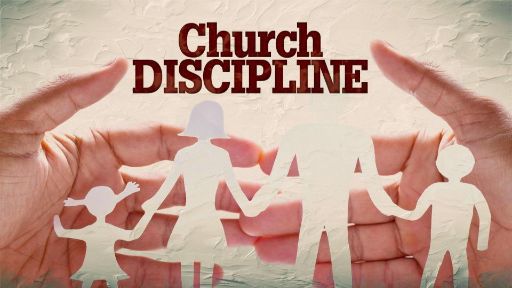-
Taking Sin Seriously Within The Church
Contributed by Jim Butcher on Nov 28, 2017 (message contributor)
Summary: This message deals with the four biggest questions about the lost discipline of church discipline.
Taking Sin Seriously Within The Church - Answering Four Key Questions:
1. What?
“The church must discipline serious sin.”
- v. 3.
- Many have given into the idea that we are to be completely non-judgmental, but “Judge not” is not all Jesus said on the subject.
- Matthew 7:1 vs. John 7:24.
- There is a difference between being judgmental and being discerning between right and wrong. (Get sermon series on that if interested.)
- There is every indication that the man was unrepentant about his action.
- This particular act was a serious sin:
A. Old Testament.
- Leviticus 18:8; Deuteronomy 22:30; 27:20.
B. Apostles’ teaching.
- Acts 15:20, 29; 21:25.
C. Pagan Corinthians.
- Even in their pagan culture it was considered wrong.
- What type of situations are we talking about?
A. Serious, unrepentant sin.
- 1 Corinthians 5:1-13.
B. A constant troublemaker.
- 2 Thessalonians 3:6-15.
C. A heretic.
- Titus 3:10; Romans 16:17.
2. Who?
“This discipline is for Christians, not the world.”
- vv. 9-13.
- also, v. 1-2 - Dealing with sin in the church is nothing new - it’s a problem as old as the church.
- Their approach is reminiscent of our’s today: we fill ourselves with pride over how “tolerant” and “inclusive” we can be. In fact, the more questionable things you approve, the more praiseworthy you are.
- Also, we have come to the view of ourselves as a “support group,” whose sole job is to encourage. Encouragement is important and biblical, but so is confronting sin.
- We are so quick to preach grace to each other and preach condemnation to the world, but the world is just acting the way it’s supposed to act. It’s the church that is supposed to be acting differently because we know who God is and have Him working in our lives.
3. Why?
“This discipline is to save the person. . . and the church.”
A. The person.
- v. 5b - Destruction of flesh, but salvation of soul.
- The goal of church discipline is ultimately redemptive. You don’t want the person to rot in hell - you want them to feel the weight of the sinful choice they’ve made and choose to forsake it.
B. The church.
- vv. 6-8.
- When a church does not take sin seriously, what may start out as a small situation can slowly spread and affect everything the church does.
- Paul noted in v. 2 that the sinful “puffed up” attitude of the church was further cemented because of their handling of this situation.
- Deuteronomy 16:1-4 puts leaven forward as picture of sin within the context of the Passover.
4. How?
“Discipline is to be pursued with a firm hand and a sad heart.”
- v. 4-5.
- The instructions Paul gives us here indicate the “endgame” of a church discipline situation. This person showed no signs of repentance. Paul instructs them to:
A. Invoke the authority of Christ.
- v. 4 - “In the name of our Lord Jesus Christ. . .” and “. . . with the power of our Lord Jesus Christ. . .”
- It’s important to recognize that this is not a tool for the pastor or church leadership to use when they don’t like someone. We are invoking the authority of Christ.
B. Pursue it publicly and with unity.
- v. 4 - “. . . when you are gathered together. . .”
- This is to be something done in a church meeting and with the church body unified in the need for it.
C. Remove that person from the protection of the church.
- v. 5a - “. . . deliver such a one to Satan. . .”
- This merely is a confirmation of the choice the person has already made for themselves.
- This is the point at which the sad heart applies. We aren’t pursuing this discipline to exact revenge or to make ourselves feel morally superior, but because we love this brother and want him to turn away from the cliff he’s walking toward. We bring discipline with the prayer that it will awaken our brother and that he will recognize his sin. To renew fellowship and to see a changed heart would bring us great joy.
- Of course, there are steps to be followed that lead up to this. Those are found in Matthew 18. The process begins privately, where hopefully the brother is open to the loving correction and the more serious steps can be avoided.
Conc:
“Discipline is still as needed today as then.”
- Open-mindedness, unthinking tolerance, and a call for privacy all have pushed us away from biblically exercising church discipline.

 Sermon Central
Sermon Central



